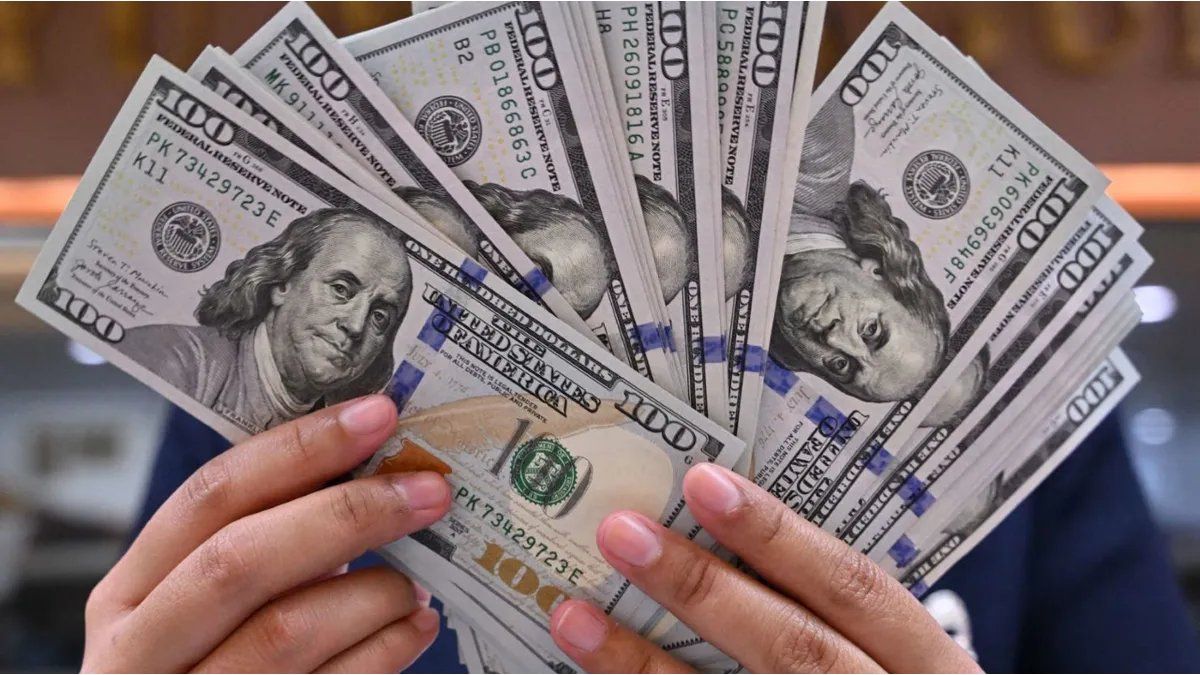Although the government presented the decision as a total release of the exchange marketthe Communication “A” 8226 of the BCRA sowed doubts when establishing restrictions for operations carried out with Physical effectivewhich led to opposition sectors to denounce a “Cralito undercover” or “Corralito 2.0”.
From the ruling Define that interpretation and explained that the limit applies only to face -to -face purchases, not to those made by Homebankingwhere there would be no restrictions.
The controversy grew when It was discussed how much money can be withdrawn in tickets Once the dollars for digital channels are bought. Government critics accused the measure of enabling the purchase of “Virtual dollar”Without real access to the ticket. So far, the BCRA did not issue a definitive clarification with concrete figures that clear the confusion.
Dollar Blue
The government removed the restrictions for people to access the free change market.
Depositphotos
What does the Central Bank say
The circular points out that “The operation is cured with a client in account of local financial entities or the use of local currency cash On the part of the client does not exceed the equivalent AU $ S100 in the calendar month in all the entities and by the set of the concepts indicated ”.
In practice, this means that if someone wishes to buy dollars carrying pesos in hand to their bank, they can only Acquire US $100 per month and must sign an affidavit that certifies not having exceeded that amount in the banking system.
In addition, banks must control that the client has income or declared funds that justify the operationand all purchases will be recorded in a special database of the BCRA. It is not yet clear if it will be allowed to withdraw Tickets in window After a digital operation without limitations, which maintains the open controversy.
Changes for importers
Together with the opening of the exchange market, also Modifications for trade operators were introduced abroad. Since April 14, importing companies will be able to pay immediately The goods that arrive in the country, which eliminates the need to wait weeks or months as happened with the previous system. This flexibility will apply without product distinction.
The SMEsmeanwhile, they will have the benefit of paying their external purchases from the moment the products They leave the country of originunless they are included in a restricted list published by the Central Bank.
For the acquisitions of Capital goodsas machinery for industries, companies will be able to anticipate up to a 30% of payment at the time of the order, and even a 80% before arrival in the country. These provisions seek to promote financial planning in the productive sector.
Services hired abroad
The new scheme also impacts the payment of services acquired abroad, such as streaming platforms, online training or consultancies. According to the provisions, if the service provider does not have a corporate relationship with the buyer, the payment may be made from the first day of use.
On the other hand, if the provider is linked to the company that hires the service, for example, a subsidiary or controlled, the disbursement must wait 90 days From the moment of benefit. This demand aims to prevent suspicious maneuvers, such as money launderingand to guarantee the traceability of transfers.
Distribution of utilities abroad
Companies with foreign shareholders or partners They can also turn the profits that correspond to them abroad, but with conditions. Only transfers of profits generated in Accounting exercises initiated since January 1, 2025backed by balances audited by public accountants.
In parallel, the BCRA said that all operations carried out before April 11, 2025 They will not be subject to new demands for statements nor to the limits established in the updated regulations.
The entry into force of these provisions will be from the April 14, 2025. The Central Bank promised to send to financial entities and exchange houses a Detailed instruction with the steps To correctly apply the new regime. Meanwhile, the debate in networks and media continues through the gray areas that still persist around the purchase and withdrawal of dollars.
Source: Ambito




